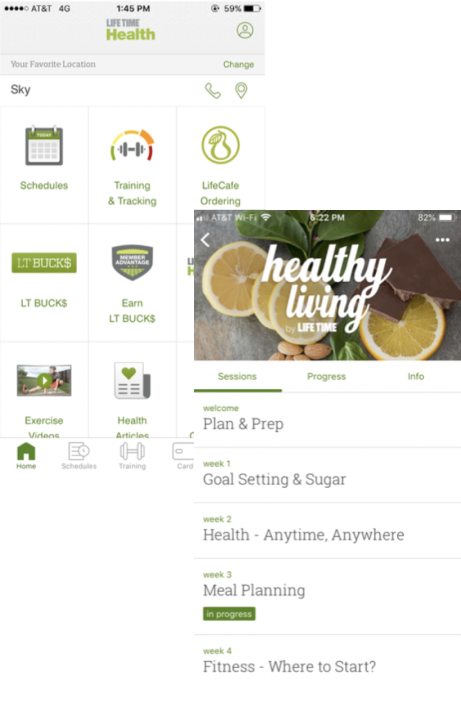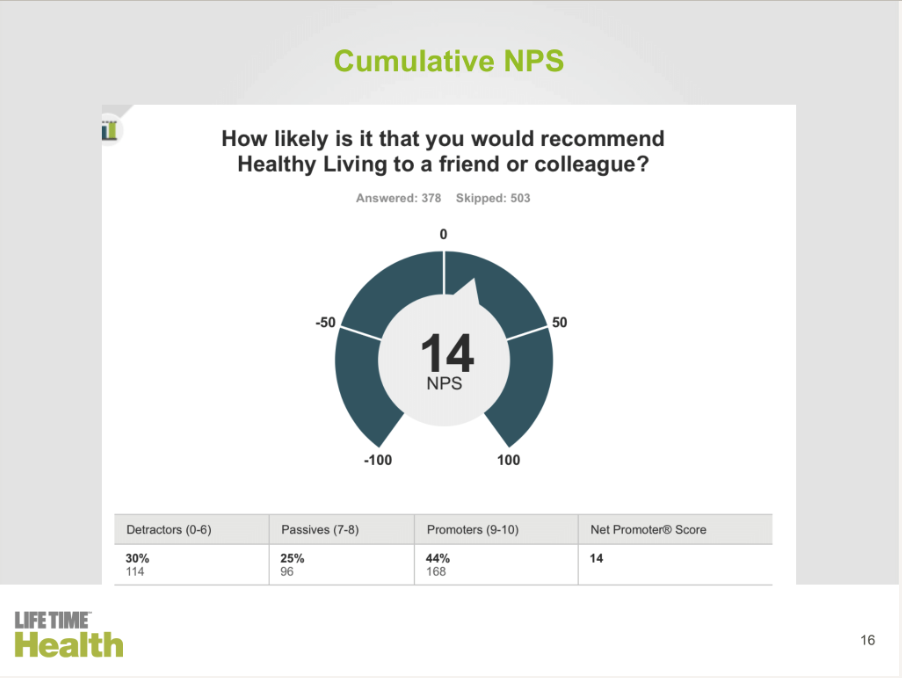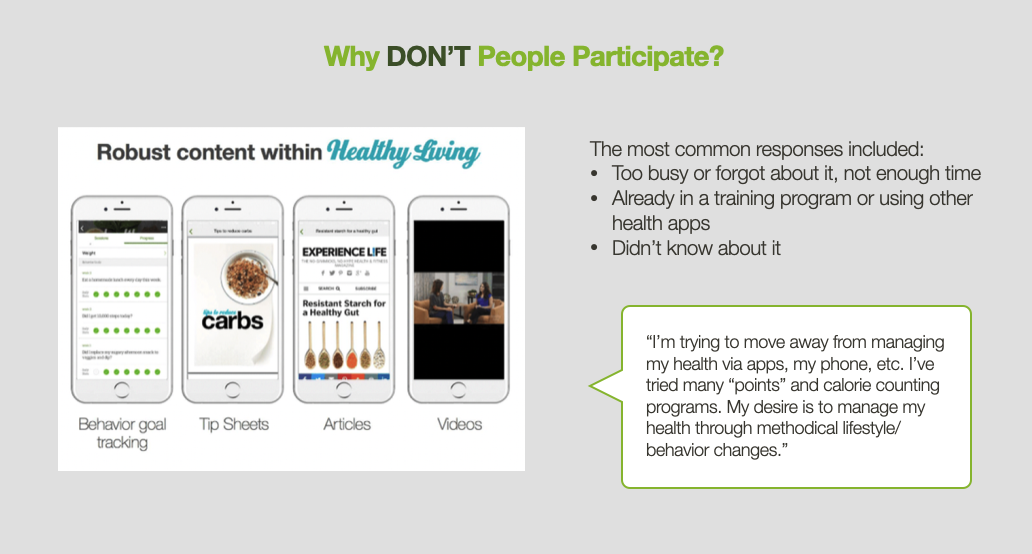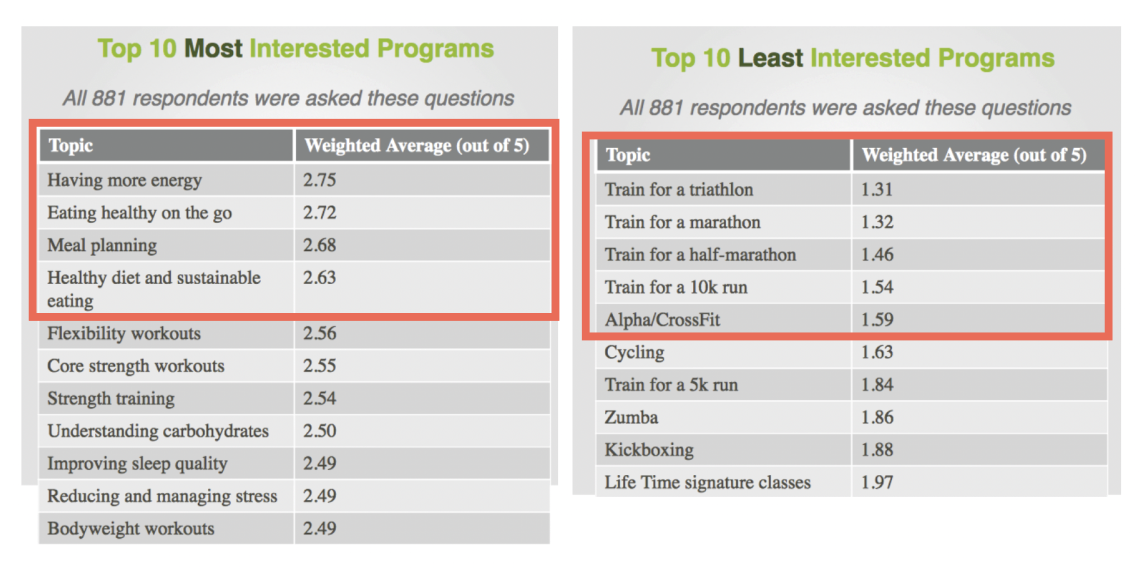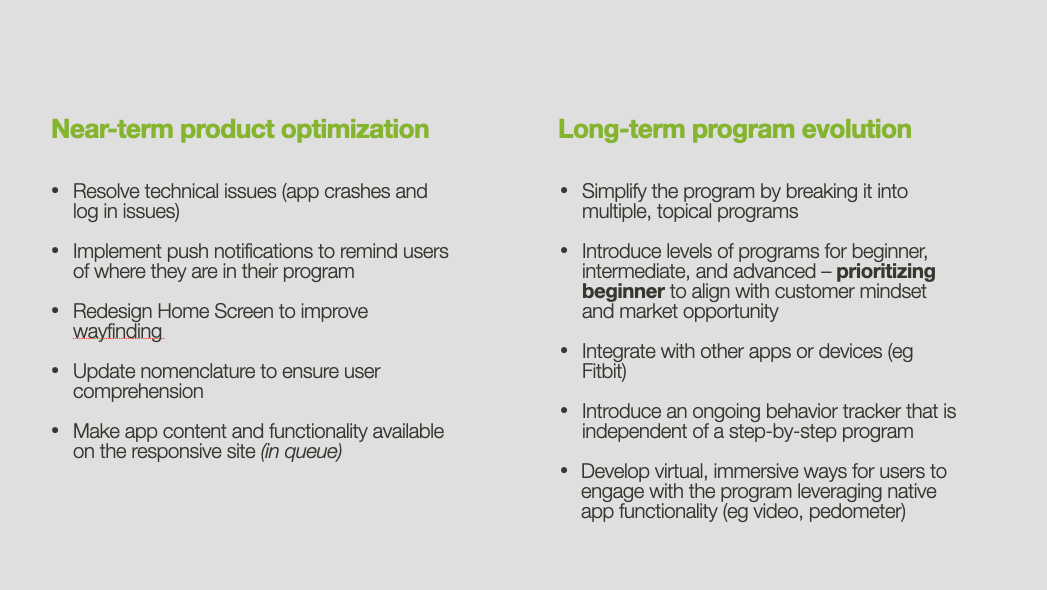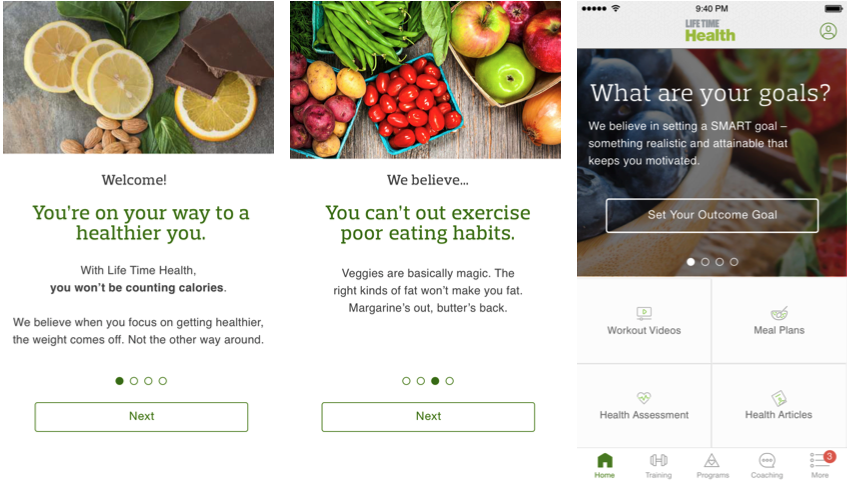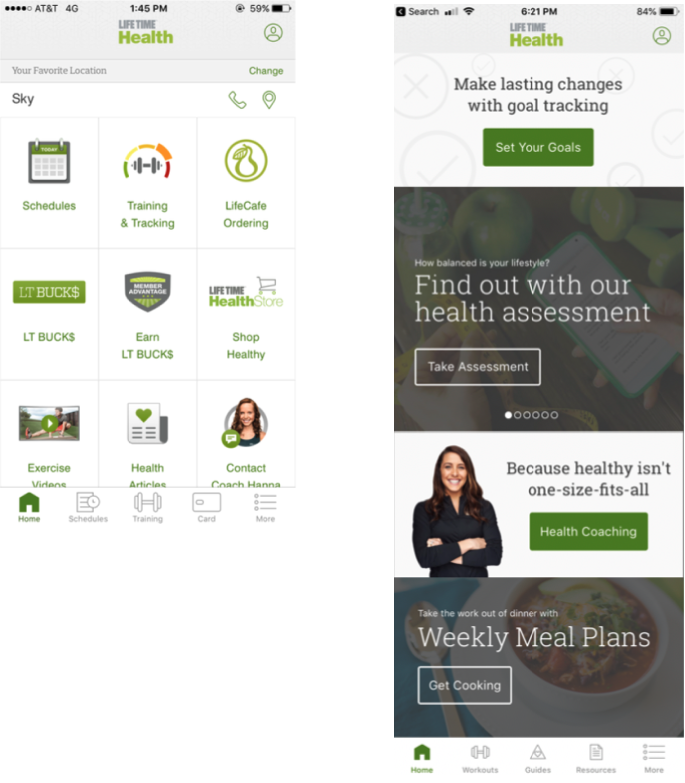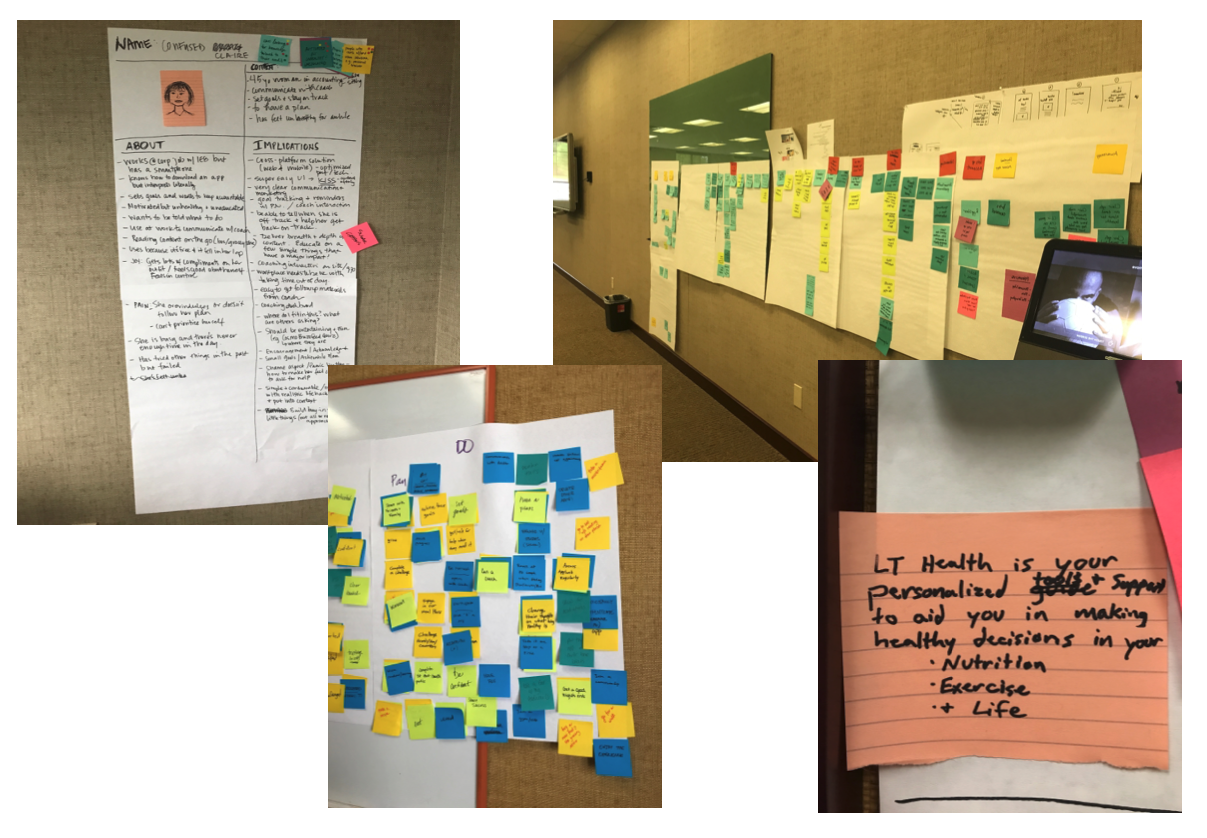Life Time Health
Product Strategy • Experience Strategy • Native App Redesign
Goal
Understand why app adoption and engagement metrics were much lower than program goals, and leverage these findings to inform a new strategy for a scalable and profitable business while changing people’s lives in the process.
Challenges
App adoption and engagement metrics were not meeting goals
1:1 coaching program was wildly successful yet the self-serve program was not
Life Time Health team had fallen into the trap of “I am the user” and didn’t fully understand the customer mindset
My Approach
Understand adoption and engagement behaviors of the current app through qualitative and quantitative research
Create a product strategy to address both near-term and long-term needs
Leverage design thinking process to move quickly and build shared understanding
Before: Life Time Health native app
Customer Mindset + Expectations
To better understand and define the problem, I conducted stakeholder interviews, ran customer surveys, and conducted 1:1 customer deep dive interviews.
Findings
Gap between self-serve program NPS of 14 vs 1:1 coaching of 68
Health is personal, emotional, and unique to everyone’s genetics, history and situation
App content was too advanced for the typical user resulting in a gap between business and user objectives
research findings
research findings
Life Time Health was investing in creating advanced programs (triathlon and 10k), yet users wanted basic and introductory information (energy, eating on the go).
research findings
Product Strategy
I developed near-term and long-term opportunities that would allow the product team to continue making meaningful improvements while the business determined how to address the program fundamentals.
Near-Term Product Optimization
With discovery and research findings in hand, I developed a near-term product strategy to solve for the most immediate problems.
Problems to Solve
Users want basic, easy-to-understand and follow health guidance to adopt healthier behaviors
Users don’t want all the bells and whistles of the former app which included Life Time Fitness gym programs (eg: class schedules and weight lifting how-to videos)
Onboard new and recurring users over time and spoon-feed new information only when they are ready to learn a new habit
Approach
Led collaborative, cross-functional ideation sessions
Moderated validation testing with stakeholder viewing
Prototype + Validation Testing
We prioritized:
New onboarding screens to introduce the concepts of this different program
Simplified navigation
Most important content first
What we found:
Improved comprehension of the program
Excitement for the concept
Minor usability improvements
prototype screens for validation testing (Onboarding and Home Screen)
Before (left) and After (right) Home Screens
Long-Term Product Strategy
In addition to identifying the near-term product improvements, I led a multi-day strategy session to co-create the long-term product strategy.
Outcomes
User personas and objectives
Story mapping of ideal experience
Feature ideation
Product vision statement
in-person co-creation session
Outcomes
Near-Term Optimization
Simplified onboarding to better introduce concepts to users
Improved wayfinding and navigation to prioritize where user and business objectives align
Simplified content strategy with a focus on the basics and educational content
Long-Term Product Strategy
Customer-centric product roadmap underway
Development of new programs to meet user needs
App restructuring to support customer mindset
